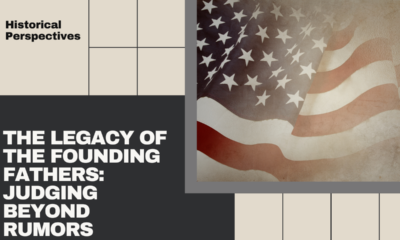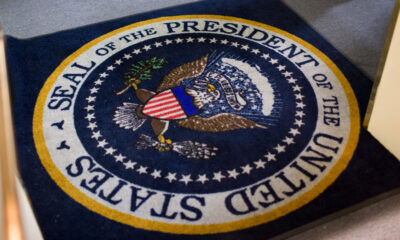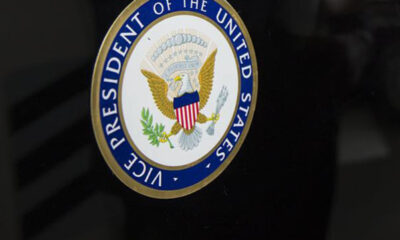Constitution
Party discipline or democracy?
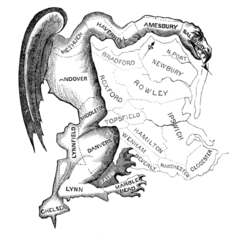
President Trump met with the Democratic Congressional leaders Wednesday and asked them, if he allows to open the government will the Democrats fund his border security request. Nancy Pelosi, without any hesitation, responded NO, indicating a lack of willingness to negotiate. So Trump said Good Bye, and left the meeting. The two obvious points are border security and opening up some government agencies. But nobody talks about the root of impasse: party discipline.
Democrats much stronger on party discipline
Both parties have some party discipline, but with the Democrats it is iron discipline. When Nancy or Chuck says NO, no Democrat dares refuse, so strong is the culture of party loyalty in the Democratic Party.
The Founders didn’t like party discipline, or parties
Let us see, how the Founding Fathers felt about the two-party system?
John Adams warned that
There is nothing which I dread so much as a division of the republic into two great parties, each arranged under its leader, and concerting measures in opposition to each other. This, in my humble apprehension, is to be dreaded as the greatest political evil under our Constitution.
George Washington appointed Jefferson and Hamilton, representing two conflicting views of government into his cabinet so a compromises could be worked out between extreme views. And he warned about the two-party system, giving a textbook description of the dangers of extreme partisanship that we are witnessing today:
George Washington on party discipline:
All obstructions to the execution of the laws, all combinations and associations, under whatever plausible character, with the real design to direct, control, counteract, or awe the regular deliberation and action of the constituted authorities, are destructive of this fundamental principle, and of fatal tendency. They serve to organize faction, to give it an artificial and extraordinary force; to put, in the place of the delegated will of the nation the will of a party, often a small but artful and enterprising minority of the community; and, according to the alternate triumphs of different parties, to make the public administration the mirror of the ill-concerted and incongruous projects of faction, rather than the organ of consistent and wholesome plans digested by common counsels and modified by mutual interests.
However combinations or associations of the above description may now and then answer popular ends, they are likely, in the course of time and things, to become potent engines, by which cunning, ambitious, and unprincipled men will be enabled to subvert the power of the people and to usurp for themselves the reins of government, destroying afterwards the very engines which have lifted them to unjust dominion.
This spirit, unfortunately, is inseparable from our nature, having its root in the strongest passions of the human mind. It exists under different shapes in all governments, more or less stifled, controlled, or repressed; but, in those of the popular form, it is seen in its greatest rankness, and is truly their worst enemy.
Party discipline leads to authoritarianism
The alternate domination of one faction over another, sharpened by the spirit of revenge, natural to party dissension, which in different ages and countries has perpetrated the most horrid enormities, is itself a frightful despotism. But this leads at length to a more formal and permanent despotism. The disorders and miseries which result gradually incline the minds of men to seek security and repose in the absolute power of an individual; and sooner or later the chief of some prevailing faction, more able or more fortunate than his competitors, turns this disposition to the purposes of his own elevation, on the ruins of public liberty.
Without looking forward to an extremity of this kind (which nevertheless ought not to be entirely out of sight), the common and continual mischiefs of the spirit of party are sufficient to make it the interest and duty of a wise people to discourage and restrain it.
Party discipline in action today: fatal to democracy
While political parties can serve some good purpose in bringing together people of similar views, extreme partisanship makes it impossible to create deals and compromises and the nation’s interest gets subordinate to the selfish party interest. As Washington wrote,“All obstructions to the execution of the laws, all combinations and associations, under whatever plausible character, with the real design to direct, control, counteract, or awe the regular deliberation and action of the constituted authorities, are destructive of this fundamental principle, and of fatal tendency.” Fatal to democracy!
All the discourse, all the horse trading should take place in Congress, with all 435 members contributing, not in the White House, among three persons. This is not democracy but oligarchy of the worse kind.
If any Democratic members of Congress show any respect for democracy and the Founding Fathers, they will resist the pressure and vote individually, in the interest of the nation and their respective districts that they represent.
This is the only way out of the present impasse. It should be in the hands of the individual Members, not in Nancy’s and/or Chuck’s!+
-

 Education4 days ago
Education4 days ago‘Grading for Equity’: Promoting Students by Banning Grades of Zero and Leaving No Class Cut-Ups Behind
-

 Education1 day ago
Education1 day agoCHAPTER 11: Critical Race Theory: A Species of the Ideological Thought Genus Marxism
Space Is No Longer the Final Frontier—Reality Is [forthcoming release May 2024] -
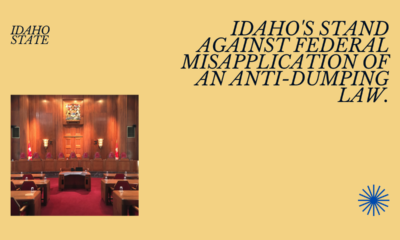
 Family4 days ago
Family4 days agoIdaho defends against abortion mandate
-
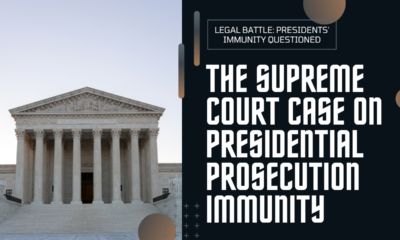
 Constitution3 days ago
Constitution3 days agoPresidential immunity question goes to SCOTUS
-

 Civilization1 day ago
Civilization1 day agoWill Trump flip New York?
-

 Clergy1 day ago
Clergy1 day agoHistorical Points Have Their Place, But That Is Not Where Your Faith Is To Stand!
-

 Civilization3 days ago
Civilization3 days agoMarine Corps Force Design: In Defense of Chowder II
-

 Guest Columns3 days ago
Guest Columns3 days agoAn Ugly Win


